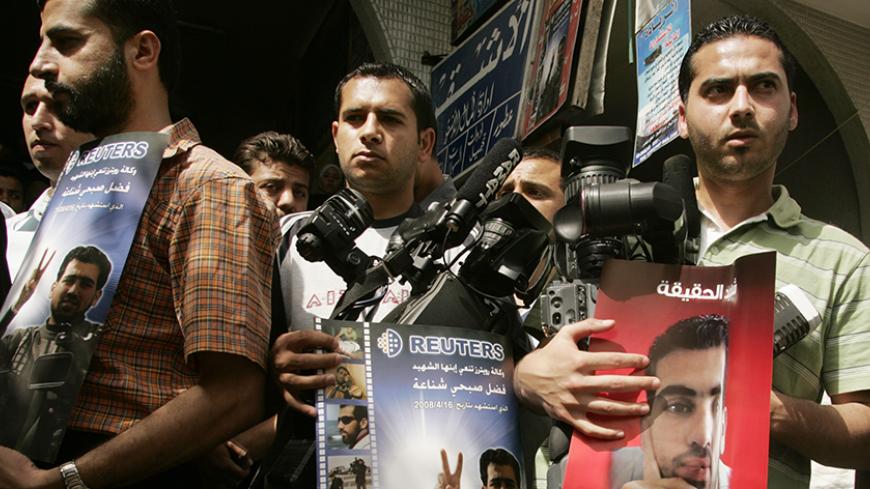Palestinian journalists in the West Bank and Gaza Strip are closely following the unfolding case of Israeli Prime Minister Benjamin Netanyahu allegedly receiving favors or gifts. Their interest is not prompted only by glee at the possible downfall of the Israeli leader they despise, but also by appreciation and envy of Israeli democracy and press freedom that enable the questioning of the prime minister under caution and the investigative reporting against him by the media.
No journalists in Gaza — no matter how senior — would even think of criticizing the leaders of Hamas, and in the Palestinian Authority (PA), criticism of any kind against President Mahmoud Abbas, or exposure of corruption in the PA, could result in the journalist’s arrest.



